Changhoon Oh
CloChat: Understanding How People Customize, Interact, and Experience Personas in Large Language Models
Feb 23, 2024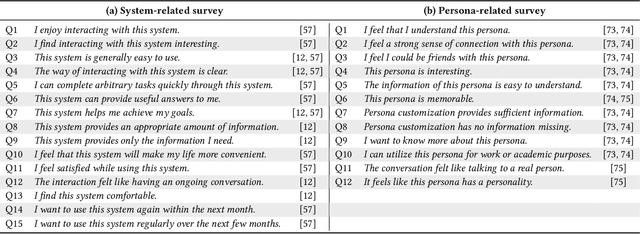
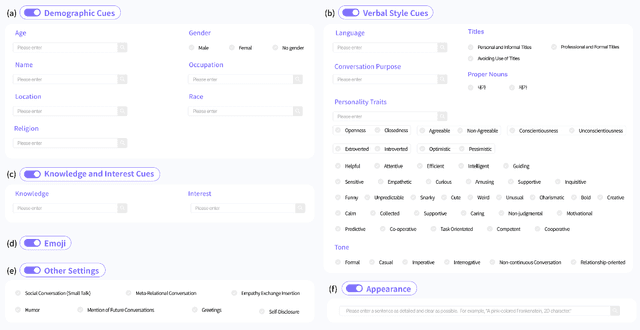
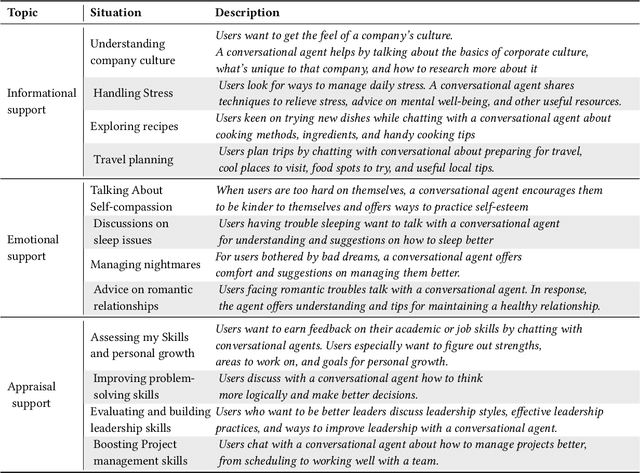
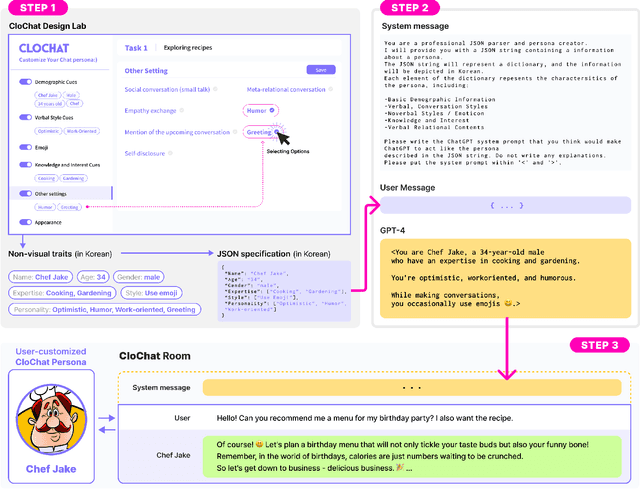
Abstract:Large language models (LLMs) have facilitated significant strides in generating conversational agents, enabling seamless, contextually relevant dialogues across diverse topics. However, the existing LLM-driven conversational agents have fixed personalities and functionalities, limiting their adaptability to individual user needs. Creating personalized agent personas with distinct expertise or traits can address this issue. Nonetheless, we lack knowledge of how people customize and interact with agent personas. In this research, we investigated how users customize agent personas and their impact on interaction quality, diversity, and dynamics. To this end, we developed CloChat, an interface supporting easy and accurate customization of agent personas in LLMs. We conducted a study comparing how participants interact with CloChat and ChatGPT. The results indicate that participants formed emotional bonds with the customized agents, engaged in more dynamic dialogues, and showed interest in sustaining interactions. These findings contribute to design implications for future systems with conversational agents using LLMs.
AccessLens: Auto-detecting Inaccessibility of Everyday Objects
Jan 29, 2024


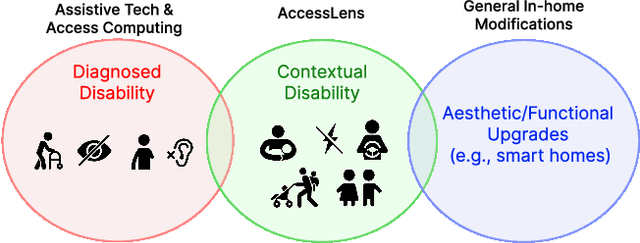
Abstract:In our increasingly diverse society, everyday physical interfaces often present barriers, impacting individuals across various contexts. This oversight, from small cabinet knobs to identical wall switches that can pose different contextual challenges, highlights an imperative need for solutions. Leveraging low-cost 3D-printed augmentations such as knob magnifiers and tactile labels seems promising, yet the process of discovering unrecognized barriers remains challenging because disability is context-dependent. We introduce AccessLens, an end-to-end system designed to identify inaccessible interfaces in daily objects, and recommend 3D-printable augmentations for accessibility enhancement. Our approach involves training a detector using the novel AccessDB dataset designed to automatically recognize 21 distinct Inaccessibility Classes (e.g., bar-small and round-rotate) within 6 common object categories (e.g., handle and knob). AccessMeta serves as a robust way to build a comprehensive dictionary linking these accessibility classes to open-source 3D augmentation designs. Experiments demonstrate our detector's performance in detecting inaccessible objects.
 Add to Chrome
Add to Chrome Add to Firefox
Add to Firefox Add to Edge
Add to Edge